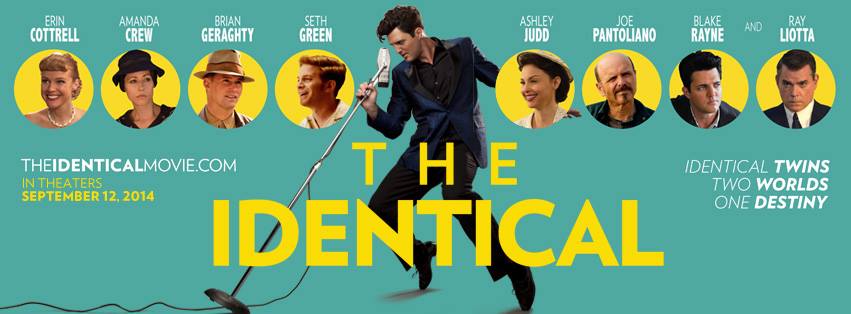Little to people’s knowledge, Elvis Presley, “The King,” was actually a twin, and his brother was stillborn. He always wondered what his life would have been like had his brother actually survived. That’s where the movie “The Identical” comes in—by fulfilling the fantasy that Elvis’ twin was alive and well—giving viewers a “what if” scenario of “The King’s” life to fame with a brother he never knew existed.
There are two protagonists in this film, the first being Drexel Hemsley, who’s resemblance to Elvis Presley is evident through his voice, music, style, and overall appearance, and the second being his twin, Ryan Wade. In this story, Drexel believes that his twin died a birth, when in fact he did not.
The story begins in the 1930s and is presented in black and white. The Hemsley’s realize that they cannot fully support two children, and decide to give one of their sons to a woman and her husband who cannot conceive.
By handing one son off, the Hemsley’s make the couple promise to keep the twin’s separation a secret until both of them are dead. They bury an empty box to convince their neighbors that only one of their children survived childbirth.
Twins raised apart and growing up with different families can strike the “nature vs. nurture” argument. Sometimes, the powerful bond between siblings, especially twins, is so strong that they relate to one another even without having ever met—that’s the nature side of the argument. The nurture side, would argue that depending how and where a child is raised, along with who raises them, results in their core character and personality development.
This film displays a perfect example of the nature side, for although the twins were raised apart, they are brought together by the burning passion of music within their matching biology.
Although Ryan’s family tries steering him toward a preacher’s future, his desire for music is undeniable. From a boy to a man, he would belt his hymns in church with a hint of gospel, sneak around to honky-tonks against his father’s wishes and even bringing his guitar with him when he joined the army. Once Ryan hears Drexel on the radio, he cannot help but be completely consumed by his unknown twin’s music, replaying his records.
Fans begin to notice the strange resemblance between Drexel and Ryan, and through this likeness, Ryan discovers himself and his dream of being a professional performer. To kickstart his new career, Ryan Wade becomes a Drexel Hemsley impersonator, traveling the country and playing all of Drexel’s top hits.
The film gives a heartfelt melodramatic feel, while displaying a sense of showmanship. The connection that these two men shared since boyhood is powerful and full of passion. Spanning from the 1930s-1970s, the struggle that Ryan has while trying to find himself feels ever so real.
He wants to please his conservative father, however he knows there’s a fire burning within him that he cannot put out—his need to perform and entertain through musical means.
The film’s set designs, props and stylists did a fantastic job accurately portraying the look and feel of the era with vintage cars, clothing and language. It gave viewers a sense of being there, while giving an up-close and personal (fictional) view towards two very similar yet different men growing into their own.
Elvis fans will surely appreciate this film. However, for those not interested in a 1930s-1970s tale of twins, rock n’ roll, Christianity and a coming of age storyline, then this is not film for you. This film was all about being true to yourself, and as Elvis Presley, “The King” once said, “Truth is like the sun. You can shut it out for a time, but it ain’t goin’ away.”



































